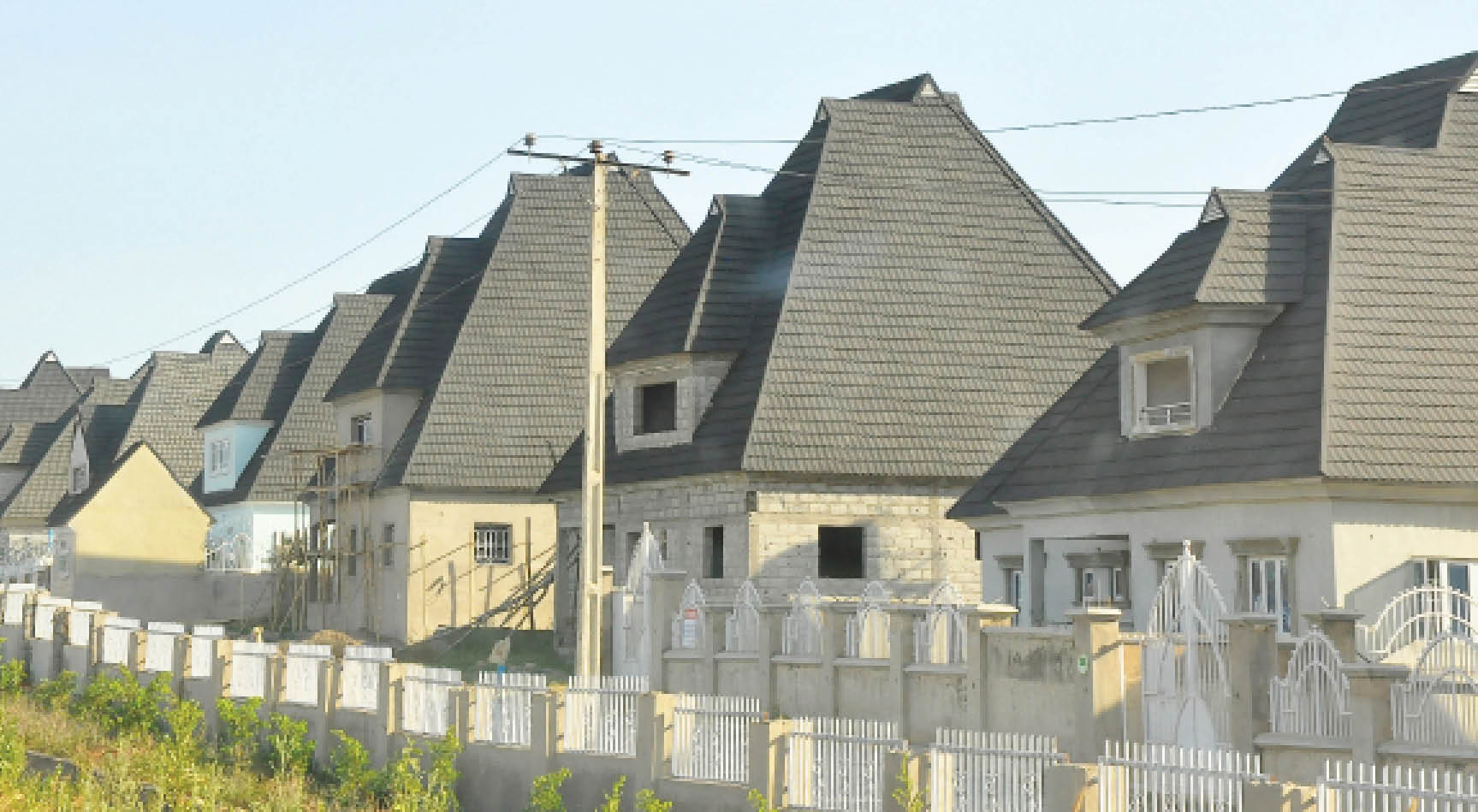On Nigeria’s real estate
Across the world, most especially in advanced western economies, real estate is the key driver of the economy. However, the sector crashes at different times and records a little setback; such as high end property remaining on the market for years, and sometimes not enough affordable properties being built to meet the needs of […]

FILE PHOTO
Across the world, most especially in advanced western economies, real estate is the key driver of the economy. However, the sector crashes at different times and records a little setback; such as high end property remaining on the market for years, and sometimes not enough affordable properties being built to meet the needs of the general populace. But by and large, it has always bounced back, quickly recovered in value and retains its position as the sector of the economy that offers a good financial opportunity.
We can compare real estate with the stock market. In stock market, you can buy shares today and probably, the price is low and you sell it and get your money. If you hang on to it, there are two components of income and the prospects of those shares increasing. It is in real estate that you have a much more secure investment, with expectations of capital growth and current income return. The fact that real estate appreciates in value over time suggests that it is a better alternative to stocks.
With an increased growth rate of 10.52 per cent in 2022 as against a growth rate of 5.60 per cent in 2021, the Nigerian real estate industry is one of the fastest growing in sub-Saharan Africa. There are huge opportunities for investment in the industry, which are expected to continue to grow, driven by a growing population and increasing urbanisation.
The deepening of our democratic structure, peaceful elections and change in leadership would most likely translate to opportunities in the real estate sector. And expectedly, investors, local and foreign, are beginning to show more confidence in the system.
Regardless of your perception about Lagos, you cannot dispute the fact that the city remains one of the top locations for real estate in Nigeria. There is no other city in Nigeria that could boast of a vibrant real estate market where the average price of housing units for middle-income earners runs into millions of naira. The population, economic growth and improving infrastructure, give the city a hedge, as far as real estate investment is concerned. With about 800,000 people settling in Lagos every year, the city is undoubtedly on the path to becoming the seventh largest urban area in the world. This makes the real estate market in Lagos to have enticing short, medium and long-term prospects.
Magodo, Victoria Island, Lekki, and Ikeja, for instance, are great real estate investment hubs for investors in the middle strata of the investing spectrum. If you are higher up on the investment strata, you might want to explore the possibilities of investing in the Eko Atlantic City or other waterside properties around the emerging metropolis.
Other investment destinations in Nigeria include but not limited to Abuja, the Federal Capital Territory, Uyo, Akwa Ibom State; Calabar, Cross Rivers State and Port Harcourt, Rivers State. Infrastructural development, development of independent power projects that will provide uninterrupted electricity and unlimited access to the world, whether by air or by sea, are essential ingredients for a vibrant real estate development, which have made these locations attractive to real estate investors.
With a rising population and resources in oil and gas, agriculture, forestry, mineral resources, Akwa Ibom is the only Nigerian state at present that is served by three export free zones, that means, triple benefits for investors. The state also boasts of economic policies favourable to investments in real estate and guarantees the safety of such enterprise with deregulating and divesting of interests in state owned companies.
Calabar is another hot spot for real estate investors for residential and commercial properties fuelled by the high level of infrastructural development in the city. The city is home to an international museum, a free trade zone and port, a botanical garden, an integrated sports stadium complex, an international airport and seaport, a cultural centre, slave history park and several other historical landmarks.
Calabar is also home to several standard hotels, resorts and amusement parks. The urban renewal drive over the last two decades in Calabar have yielded great results as the city continues to obtain global prominence with its title as the cleanest and best environmentally managed city in Nigeria, in addition to its enormous tourism potential.
Situated at the centre of the country, the capital of Nigeria and the seat of government, the eighth most populous city in Nigeria, which continues to experience a surge in population, and with best network of roads in Nigeria and constant rise in demand for properties, Abuja will continue to attract real estate investors. Undoubtedly, real estate investment and business will continue to flourish and wax stronger in the Federal Capital Territory.
In a nutshell, real estate is a reliable and most secure investment, which most definitely will continue to thrive in Nigeria because the sector is key to human development and fulfillment.
There is no business that does not require real estate and there is no human being that does not require real estate, one way or another. The potentials are there, the opportunities are there, but we need the economy to be properly focused, properly led and managed by policymakers and the government in particular. Challenges of availability of serviced plots for housing development, good title for the plots, basic infrastructures and other hindrances to real estate development must be addressed for the sector to launch the country’s economy on the path of sustainable development.
Ojuko is an Abuja-based estate surveyor and valuer
